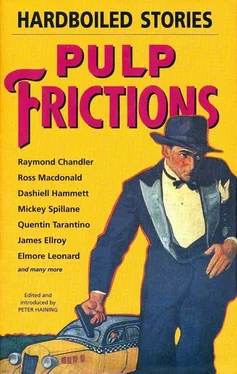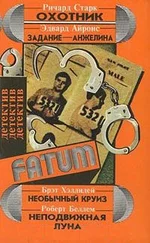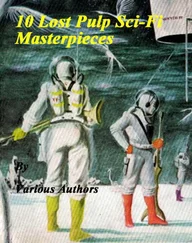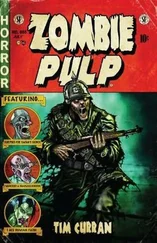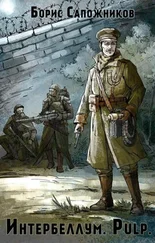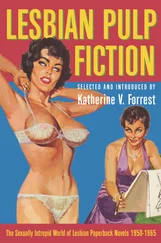‘She claimed it was done purposely,’ said Moe. ‘Me, I got my doubts. It was like this. That girl the feller killed, she had on a string of glass beads, see? So the string broke and they rolled all over the floor under everybody’s feet. So this one, she slipped on ’em, fell and turned her ankle and couldn’t dance no more. Then she starts hollering blue murder.’ He shrugged. ‘What should we do, call off the contest because she couldn’t dance no more?’
‘She did it purposely,’ broke in the girl hotly, ‘so she could hook the award herself! She knew I had a better chance than anyone else—’
‘I suppose it was while you were sitting there on the floor you picked up the pencil Monahan had dropped,’ Smitty said casually.
‘I did like hell! It fell out in the bleachers when he came over to apolo—’ She stopped abruptly. ‘I don’t know what pencil you’re talking about.’
‘Don’t worry about a little slip-up like that,’ Smitty told her. ‘You’re down for it anyway — and have been ever since you folded up out there just now. You’re not telling me anything I don’t know already.’
‘Anyone woulda keeled over; I thought I was seeing her ghost—’
‘That ain’t what told me. It was seeing him pretend to do it that told me he never did it. It wasn’t done outside at all, in spite of what your old lady tried to hand me. Know why? The pencil didn’t go through her dress. There’s no hole in the back of her dress. Therefore she had her dress off and was cooling off when it happened. Therefore it was done here in the restroom. For Monahan to do it outside he would have had to hitch her whole dress up almost over her head in front of everybody — and maybe that wouldn’t have been noticed!
‘He never came in here after her; your own mother would have been the first one to squawk for help. You did, though. She stayed a moment after the others. You came in the minute they cleared out and stuck her with it. She fell on it and killed herself. Then your old lady tried to cover you by putting a pad on the wound and giving Monahan the idea she was stupefied from fatigue. When he began to notice the coldness, if he did, he thought it was from the alcohol-rubs she was getting every rest-period. I guess he isn’t very bright anyway — a guy like that, that dances for his coffee-and. He didn’t have any motive. He wouldn’t have done it even if she wanted to quit, he’d have let her. He was too penitent later on when he thought he’d tired her to death. But you had all the motive I need — those broken beads. Getting even for what you thought she did. Have I left anything out?’
‘Yeah,’ she said curtly, ‘look up my sleeve and tell me if my hat’s on straight!’
On the way out to the Black Maria that had backed up to the entrance, with the two Falvey women, Pasternack, Moe and the other four dancers marching single file ahead of him, Smitty called to the cop: ‘Where’s Monahan? Bring him along!’
The cop came up mopping his brow. ‘I finally pried him loose,’ he said, ‘when they came to take her away, but I can’t get him to stop laughing. He’s been laughing ever since. I think he’s lost his mind. Makes your blood run cold. Look at that!’
Monahan was standing there, propped against the wall, a lone figure under the arc light, his arms still extended in the half-embrace in which he had held his partner for nine days and nights, while peal after peal of macabre mirth came from him, shaking him from head to foot.
The hardboiled story took several years to cross the Atlantic and find a substantial following in Britain. Initially, the gaudy, violent covers of the pulp magazines, with their illustrations of leering gunmen and terrified females, were viewed as unsuitable for British readers: those titles that did reach the country tended to arrive as ballast in cargo ships and were then sold in cut-price chain stores. However, when the top writers like Daly, Hammett, Chandler and Gardner began to enjoy hardcover publication, their fiction took on a kind of respectability and started to be published in Britain as well. Here the more astute and less easily shocked crime fans soon realised that the genre was going through a radical change. Finally, a few British writers began to imitate the Americans’ hardboiled style, most prominent among them a former songwriter, journalist and owner of an investigation agency named Peter Cheyney, of whom the detective story historian H R. F. Keating has written in his Whodunit? A Guide to Crime Fiction (1982), Best known for his Lemmy Caution books which brought the feel of the hard-nosed private eye novel to a London setting, Cheyney was accused of being sadistic, spurious and fascist in his writings. His books were certainly tough and excitingly different from most contemporaneous British crime writing. ’
Lemmy Caution was a G-man based in New York, who spoke in crisp, staccato sentences, never backed away from violence and took the fight against crime to the criminals themselves. He tackled with equal vigour cases against gangsters, drug-dealers and those who ran vice and protection rackets. British critics decided immediately after his first appearance in September 1936, in This Man is Dangerous, that he was ‘a very tough egg’. Lemmy had been created by Cheyney partly from his own knowledge of the workings of the London criminal underworld and partly from his enthusiasm for American gangster films, especially those based on the work of W. R. Burnett. Four more novels and a number of short stones about the irascible G-man followed, quickly establishing Peter Cheyney as Britain’s first star member of the hardboiled school. In 1938, in The Urgent Hangman, he also introduced a private detective, Slim Callaghan, and for the next decade he was one of the biggest-selling crime authors in the country. In 1940 Lemmy Caution became the star of a BBC radio series which was very popular throughout the war years, to be followed by a series of eight films starring Eddie Constantine and culminating in the surreal Alphaville (1965), directed by Jean-Luc Godard, in which Lemmy found himself in a mechanised police state of the future.
Peter Reginald Evelyn Cheyney (1896–1951) first tried writing while still at school — remembering years later that even at that time he loved using ‘machine gun phrases’ — and then worked for a while as a solicitor’s clerk and composer for the stage. After military service in the First World War (where he was shot in the stomach in the same manner as many of Lemmy Caution’s adversaries), he embarked on a career in journalism and founded ‘Cheyney’s Research and Investigations’, which brought him into contact with the criminal elements of London and thereby the raw material for his books. Although there were those who objected to what they saw as the excessive violence in his fiction, Cheyney’s work undoubtedly represented another landmark in the story of hardboiled fiction. ‘Nice Work’ is a typical Lemmy Caution tale and was originally published in 1936.
* * *
The guy in the dirty grey fedora looked like he might have come out of the Bellevue Morgue — off a slab. He was big and his jaw jutted over the edge of his upturned coat collar. His eyes shifted all over as if he was waiting for somebody to pick up any time. His shoes were broken and the upper of one had gone rotten with wet. Each time he took a step it squelched.
He had four days’ growth of hair on his face and he kept in the shadow of the wall. His fingers, inside his coat pocket, were clasped round the butt of a .38 police Positive that had once been issued to a copper who got himself cited for bravery in the line of duty the day after they buried him.
Читать дальше
